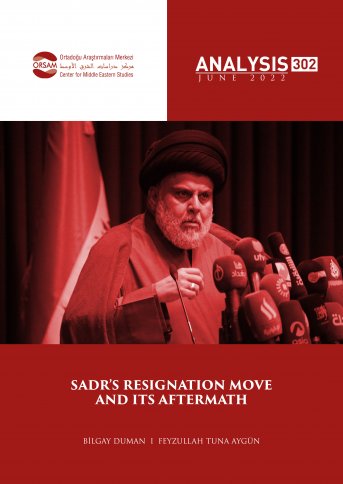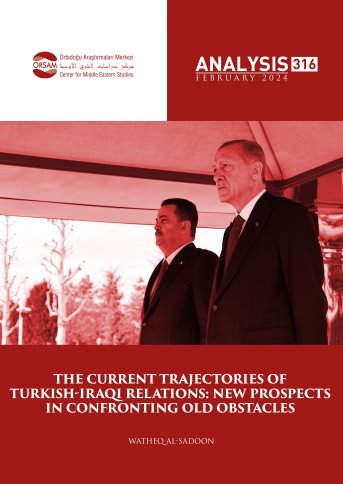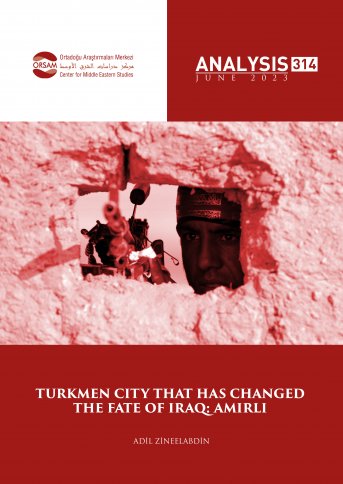
Sadr’s Resignation Move and Its Aftermath
After the 2018 Parliamentary Elections in Iraq, there were efforts to form a majority government for the first time, in which all parties who have seats in the parliament were not represented. After the elections, it was supposed to determine the largest parliamentary bloc in accordance with the number of deputies. Yet, as the deputies left their parties, it was not decided which bloc was the largest. Therefore, the two largest blocs, Sairun (the Sadr Movement) and Fatah, were not officially declared as the largest blocs, and Adel Abdulmahdi was picked as Prime Minister after the two blocs agreed. However, due to the anti-government demonstrations that started in October 2019, Abdul Mahdi's government became the first cabinet in the Iraqi political system after 2003 that could not fulfill its term and had to resign. In this context, the efforts by Muhammed Taufiq al-Allawi and Adnan al-Dhurfi to form a government failed in the Prime Ministry crisis in the country. Afterwards, Mustafa al-Kadhimi, Head of the Iraqi Intelligence Service, formed the government with the promise of early elections, and accordingly, early parliamentary elections were held in Iraq on October 10, 2021, with a turnout rate of approximately 41 percent. More than two months after the elections, the Iraqi Federal Supreme Court approved the election results, and the results were finally announced.
According to the election results, the Sadr Movement had 73 deputies and the Fatah Coalition, which claimed to have formed the largest bloc after the 2018 elections, remained in 17 seats. In this context, the Sadr Movement, as the largest political group has declared that it has established the “Save the Homeland” Bloc, which includes the Taqaddum (Progress) Coalition of Sunnis led by Mohammed al-Halbousi, the Sovereignty Bloc of the Azeem Coalition led by Khamis Khanjar, and the Kurdistan Democratic Party (KDP). However, since the number of deputies who won the election through these parties remained at 155, it remained insufficient for Presidential elections that would initiate the establishment of the government. On the other hand, the Shiite Coordination Framework, led by the State of Law Coalition of former Iraqi Prime Minister Nouri al-Maliki and the Fatah Coalition led by Hadi al-Amiri, the leader of the Badr Organization, which emerged in opposition against the Save the Homeland Bloc, had at least 70 deputies. The parliamentary balance that emerged as a result of this situation did not enable the Save the Homeland bloc to form a government. On the other hand, Muqtada al-Sadr announced that he would go to the opposition after his failure to form a government and gave 40 days to the Shiite Coordination Framework to form a government, covering parts of April and May. However, the arithmetic in the Iraqi Parliament, which did not allow the Save the Homeland bloc to form the government, did not enable the Shiite Coordination Framework to form the government in Iraq.
During this period, it was not possible to form a government for eight months due to al-Sadr's resistance against a majority government and the Shiite Coordination Framework’s desire to be represented in the government with all its elements. although it has been about eight months since the elections. For this reason, the al-Kadhimi government continues its duty in its temporary capacity only to carry on day-to-day affairs. At this point, some vital developments, such as the 2022 budget, which will become effective with the increase in prices after the budget, whose effect has decreased due to the need for reconstruction and low oil prices after the terrorist organization ISIS, have been sacrificed to political problems.








